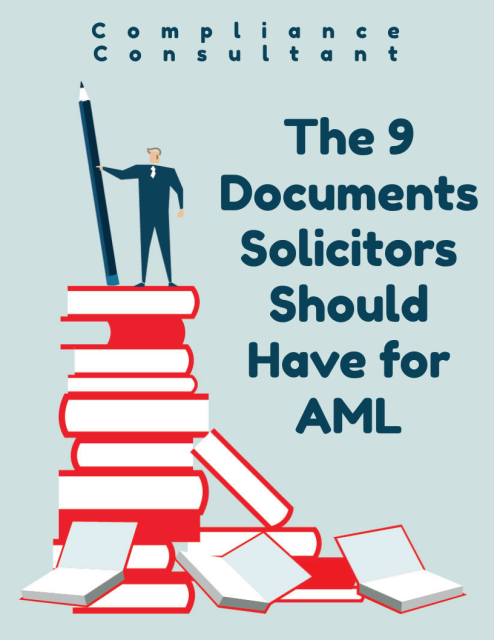



UKFS: 9 Documents Solicitors Should Have for AML
The Enforcement of Anti-Money Laundering & Counter Terrorist Financing Standards according to MLR2017 and SRA Regulations
The crucial mission of the Solicitors Regulatory Authority (SRA) has always been to prevent money laundering within the legal sector, even though monitoring their members' compliance has sometimes proven challenging. The regulatory body oversees firms that frequently manage large sums of money or unintentionally obscure transactions through their services. This renders these firms appealing targets for criminals and terror financiers seeking to launder money.
The notion of inadvertently aiding money launderers is deeply disturbing to the majority of solicitors, who recognise that this is not a crime without victims. To combat this, the SRA is committed to collaborating with the legal profession to mitigate the risk of law firms being exploited for such purposes.
You and your practice are required to fulfil your Anti-Money Laundering (AML) compliance obligations as mandated by the MLR 2017. There are criminals nationwide who use property purchases, trust establishments, corporate vehicles, and legal services to assist their illicit activities.
The persisting issue is that these criminals are often more advanced in their operations than practitioners, and are highly skilled at utilising sophisticated methods to launder illicit funds.
The SRA has increased its fining powers from £2,000 to £25,000, a move aimed at enforcing stricter penalties for misconduct within law firms and among solicitors. This change facilitates quicker case resolution and broadens the scope of offences for which fines can be issued, ranging from subpar staff training to severe offences such as failing to implement the necessary checks to detect money laundering.
Previously, any disciplinary case necessitating fines exceeding £2,000 was redirected to the independent Solicitors Disciplinary Tribunal (SDT).
What's the significance?
About 90% of the fines currently issued by the tribunal are below £25,000, enabling the SDT to shift its focus onto fewer, yet more substantial allegations, like firms representing sanctioned Russian oligarchs and companies.
Between 2014-2021, almost 90% of fines imposed by the SDT were less than £25,000.
The SRA retains the authority to refer cases to the SDT when it's suitable to impose a financial penalty over £25,000, or when it believes that it is in the public's interest for the SDT to decide on a case, regardless of the potential fine being within the SRA's fining powers.
So what documents might you need?
Typically, the SRA would expect;
AML Policy See https://www.sra.org.uk/solicitors/resources/money-laundering/aml-regulations-apply/
AML Procedures
AML Risk assessment (as per SRA R18)
Risk Management Policy (including annual assessment)
List of Beneficial Owners, Officer & Managers (BOOMs) in the practice. See
https://www.sra.org.uk/solicitors/resources/money-laundering/what-does-my-firm-need-do/
Details of Training (Material, Staff trained, Log of events)
Method of logging incidents, events etc.
Internal SARs form.
AML Controls Statement.
Where can you look for independent help?
Many legal professionals have looked to us for help in ensuring all of these issues are up to date and fit for purpose moving forward. Call us today on 0800 689 0190 or email info@complianceconsultant.org.
Affiliates
Like this product?
Spread the word about it and earn 50.00% of the purchase price on sales you refer.
Join our affiliate program